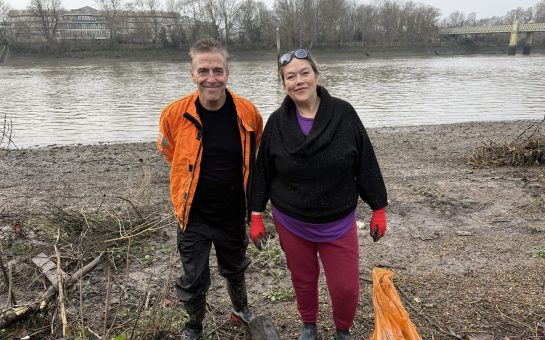With Rugby Union facing further questions surrounding the dangers of concussion we spoke to two experts in south west London to get their views.
A player suffering from a head injury will now be taken off the field of play and put through a series of tests by the medical department before being given the go-ahead to re-emerge on the pitch.
Previously, players wanting to leave the field with a head injury felt it would be frowned upon because it wasn’t deemed serious enough.
Dick Dunford, director of youth rugby at Wimbledon RFC said: “We have the Head Incident Assessment in place and we always have physios at our matches so we have people who are professionally trained who can do the HIA there and then.
“We always follow the protocols laid out by the Rugby Football Union which can be hugely frustrating for the boys because often they want to get back out there but we have a duty of responsibility to make sure we are maintaining their health for the long term, not just the length of a rugby match.”
Players within the youth team set up at Wimbledon, like many other clubs across the country, also debate whether to wear a scrum cap.
Mr Dunford said: “There’s an England player called Jack Nowell who said recently he wears a scrum cap because it gives him confidence to put his head in where it hurts where he shouldn’t which seems counterintuitive.
“Does that mean those boys that don’t wear a scrum cap are less inclined to put their heads in at a situation which is likely to be dangerous?
“I don’t think it is necessarily the physical impact of head touching head but it’s the repercussions of the brain shaking around in the skull.
“The scrum cap might minimise some cuts to the head for example but it doesn’t necessarily minimise the impact.”
Mr Dunford added: “Boys and girls doing their GCSEs are now learning about the impact of head injuries within sport.
“I think it can only be a good thing that people are much more aware of it.
“Interestingly enough the sport which appears the highest in terms of cases of concussion is horse riding because you’re falling from quite a height with rugby coming in about eight.
“But I am not saying rugby isn’t a dangerous sport because it is.
“I have now seen in the past decade where both coaches and referees’ paramount responsibility is to ensure the safety of the players and reduce as much risk to both boys and girls in every scenario.”
Conor Gissane PhD, professor in sport biostatistics and injury epidemiology at St Mary’s University in Twickenham, believes that big strides have been made medically regarding head injuries but concussion still remains relatively unknown.
Professor Gissane said: “It is now considered an injury and there has been a movement in recent weeks to align concussion alongside that of a brain injury.
“People know much more about it now, it’s researched much more now, people before used to think bang on the head, let me shake it off and get back in there.
“But they don’t do that now. You have only got the one brain and you have got to look after it.
“It controls everything and people are looking to protect players much more than they used to.
“The new strategy regarding concussion which was implemented for the World Cup last year is an improvement on what was previously in place.
“It is much better now that they take the player off the field and the environment of play and assess the player.
“Unfortunately we know little about concussion but now our strategies are changing and improving all the time.”
Former Scotland international John Beattie has recently raised awareness of how head injuries in rugby can lead to dementia in adults later in their life.
Professor Gissane believes it is very difficult to link to old head injuries to dementia.
He said: “We are talking about something which develops over time and further on after playing, not necessarily the year after playing so what he is doing is right and it should be checked.
“I can’t disagree with what John Beattie said but with the long term effects we can’t define them as well as we would like.”
The International Concussion and Head Injury Research Foundation are researching the specific longer effects of concussion.
Professor Gissane added: “From my point of view we look a lot at the effects for our university students and we concussion test them at the beginning of every year.
“The major thing students are doing is learning, that is a part of their development and we want to know if someone’s learning and cognitive functions are being affected.
“We have got to look after the students.”
Other sports are also looking into methods of improving the treatment athletes receive on the field when receiving head injuries.
Professor Gissane said: “The Americans are doing a lot of research. They are taking it seriously and I know that Rugby League is doing a lot of work into concussion testing.
“Another sport which is emerging is women’s football and I have read reports how that has one of the highest rates of concussion in all sports.”
Image courtesy of O2 via YouTube, with thanks




